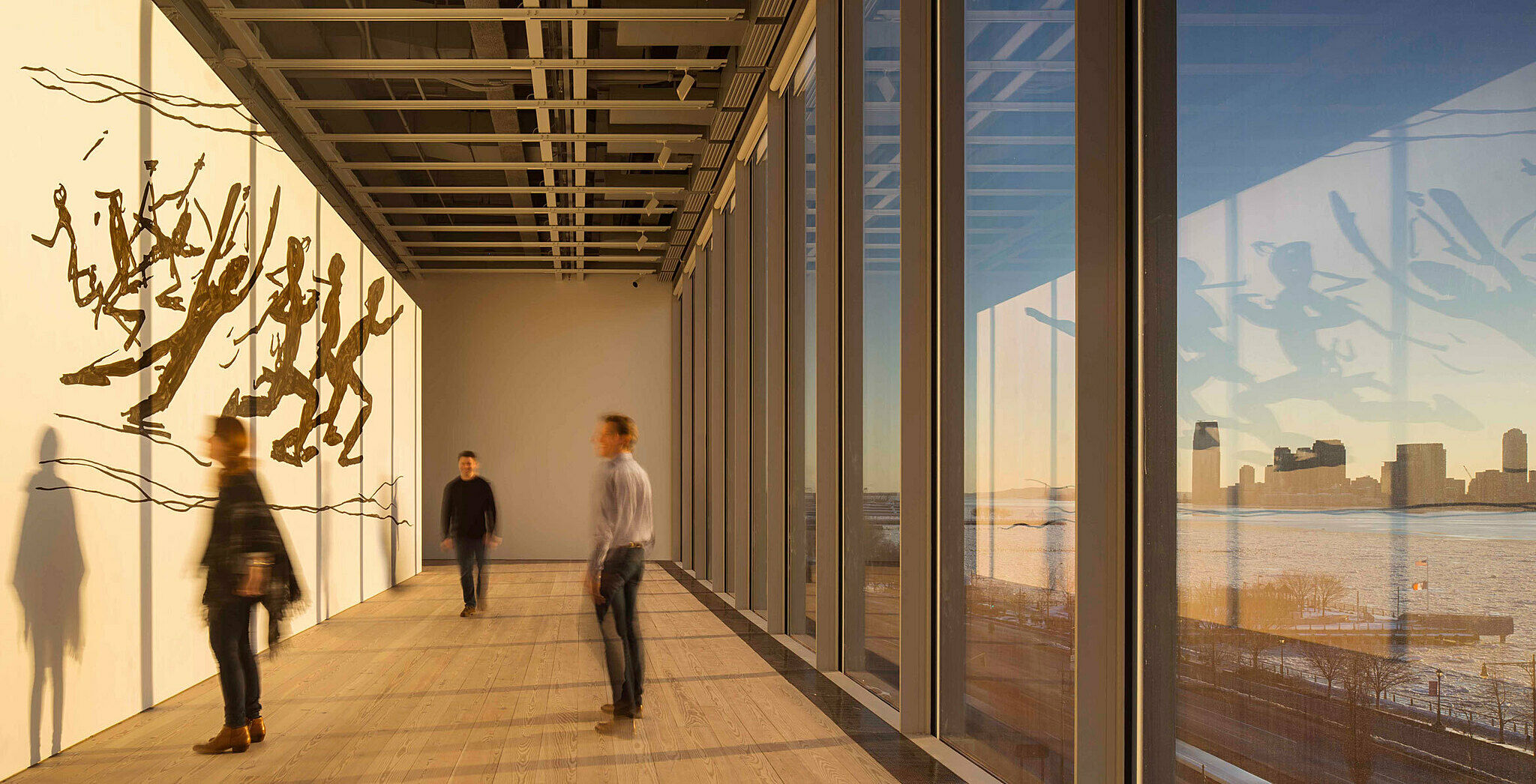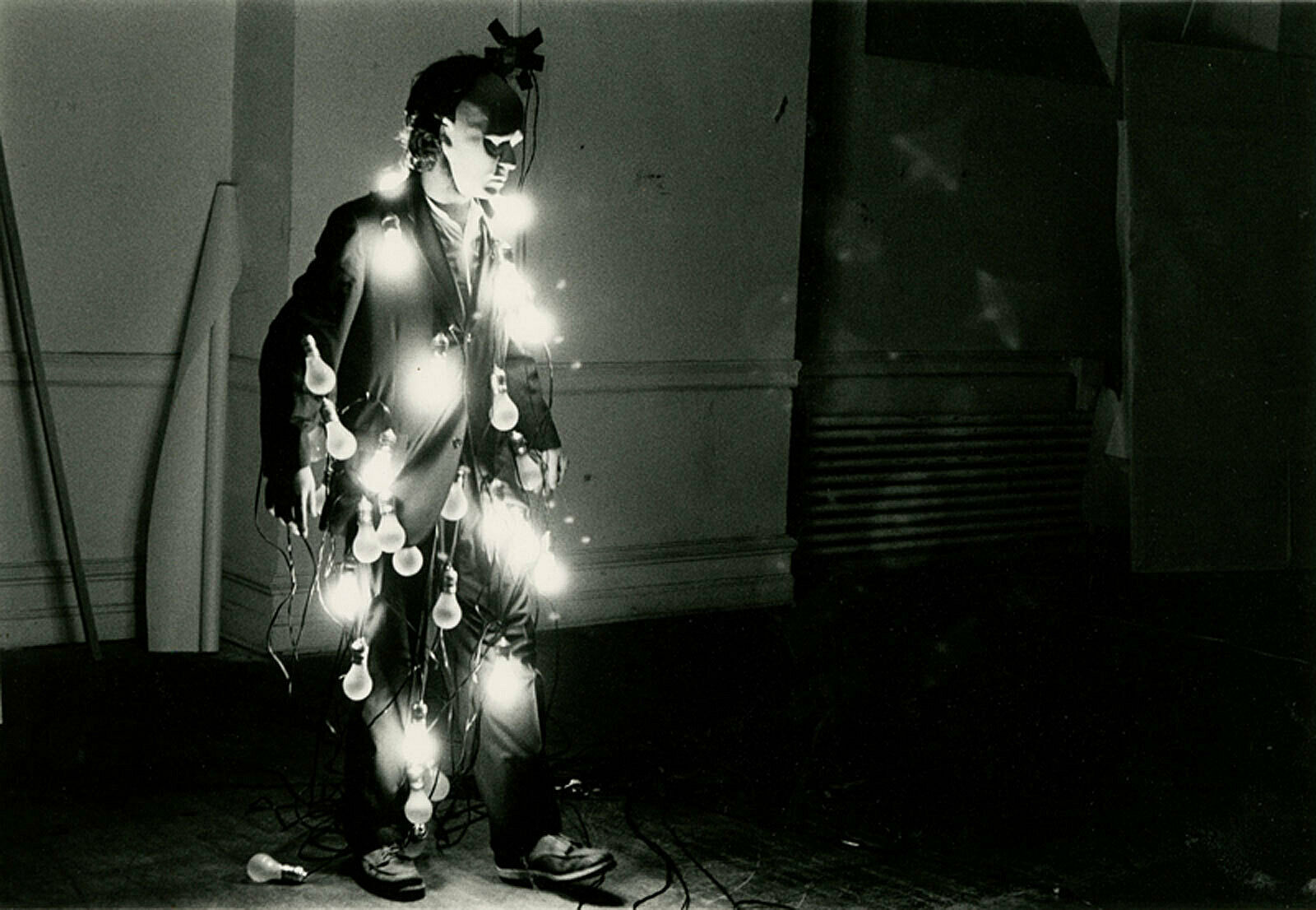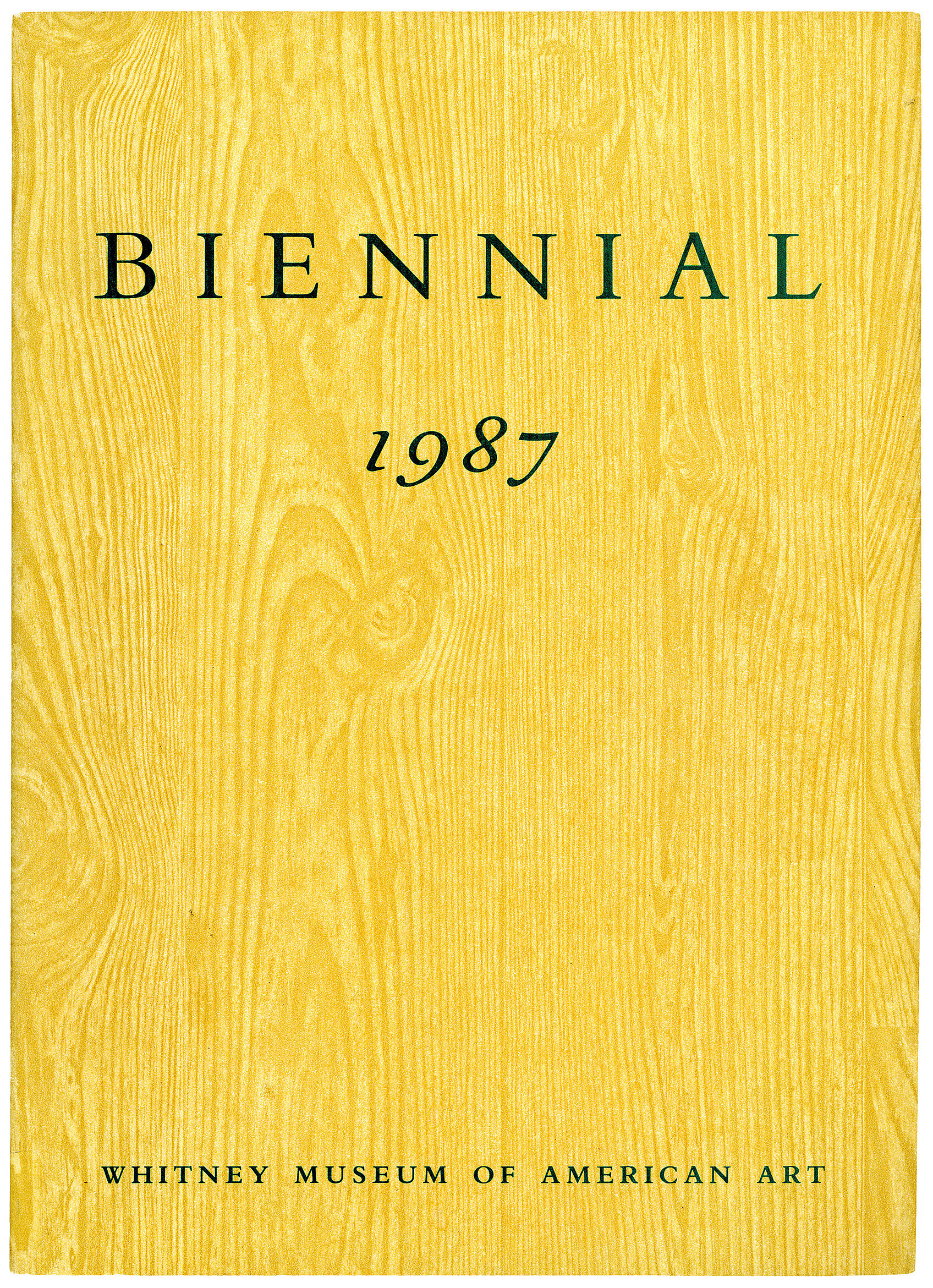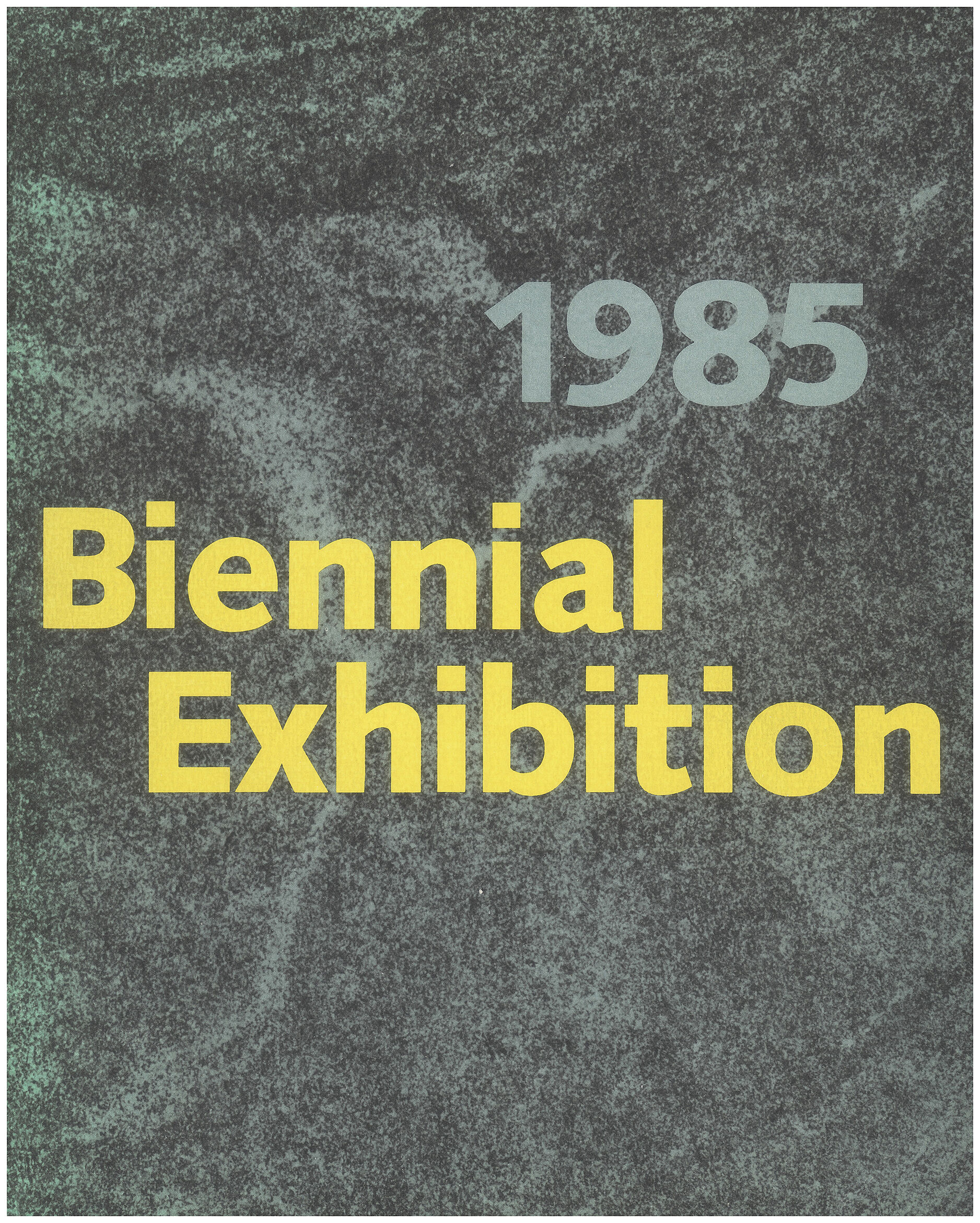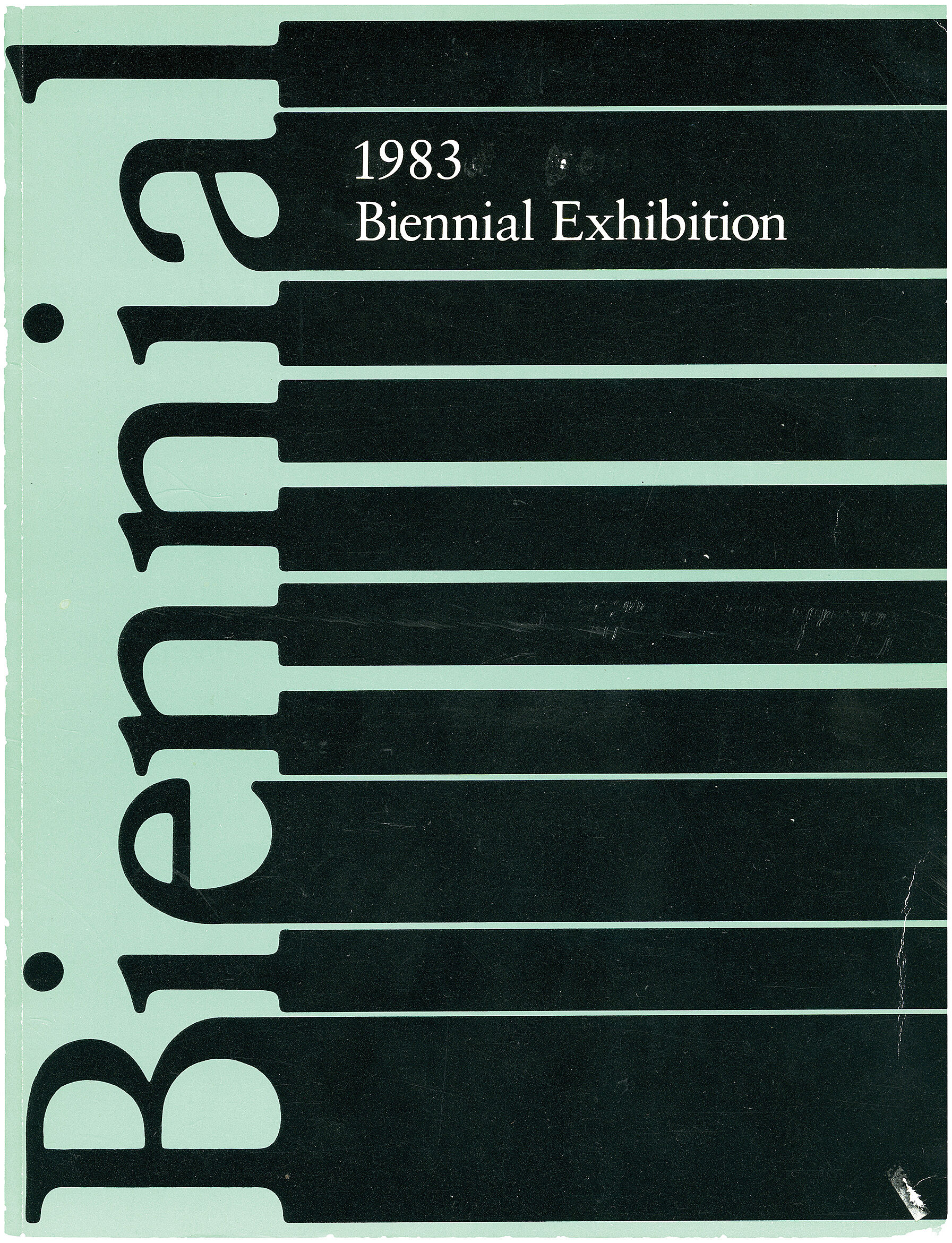Ericka Beckman
1951–
When Ericka Beckman attended California Institute of the Arts in the 1970s, the school was forging a reputation for its rigorous, theory-based curriculum under the leadership of conceptual artist John Baldessari. After graduating, Beckman and fellow alumni Jack Goldstein, David Salle, and Ashley Bickerton relocated to New York, determined to invent new art forms for what they deemed an image-saturated world.
Beckman began to create films with narrative structures that she likened to games or folklore. She shot elaborate performances on crudely constructed sets, adding animation and chantlike music to evoke a fragmented, ambiguous experience. Her techniques were often labor-intensive, with multiple layers of film hand-altered and edited together to make the final piece. Critical response to Beckman’s early work was divided: in 1978 one critic called her “easily one of the most interesting young filmmakers around,” while her appearance at the 1983 New York Film Festival earned jeers from the audience.
It was at this festival that Beckman debuted You the Better (1983), an absurdist meditation on competition in which a cast of two dozen performers, led by Bickerton, competes in a nonsensical gambling game that combines elements of basketball, dodgeball, and roulette (the Better of the title is a play on bettor). Although the film features childlike primary colors, punchy animated graphics, sports lingo, and an upbeat jingle, Beckman twists these elements until they become menacing.
Power of the Spin is a preparatory study for You the Better. Beckman has said that such expressive, freehand drawings “allowed me to work directly from my imagination and try to see if any idea or motif from that realm could be transformed into a performance or prop sequence for a film.”
Introduction
Ericka Beckman is an American contemporary visual artist and filmmaker. She came to prominence in the 1970s as part of the Pictures Generation, a group of American conceptual artists who appropriated popular culture imagery for the purpose of cultural critique. Beckman's practice has focused on the potential for cultural transformation and individual agency through the exposition and subversion of dominant ideologies in media. Her film and video works adopt game and fairytale tropes as structuring device, employing hand-made sets that suggest playing fields together with protagonists (or "players"), whose rule-based actions are choreographed to the rhythms of musical scores and incantations. Now considered prescient, her work has marked the rising influence and effects of video gaming and digital image-production on psychological development and social life. In a review of Beckman's first US retrospective, Margaret Carrigan wrote, "Beckman has centered her video work on the visual language of games, fairytales, and folklore. While these might be sources of childhood fun, Beckman is not playing around: her dark, techno-futuristic films and installations use these tropes to question role-play, gender and identity, as well as issues surrounding late-capitalist systems of power and control."
Beckman's work belongs to the public collections of the Museum of Modern Art (MoMA), Metropolitan Museum of Art, Centre Georges Pompidou, Whitney Museum, The Broad, and Walker Art Center, among others. She has exhibited or screened work at those institutions, as well as at Mumok (Vienna), Tate Modern, Los Angeles County Museum of Art, the Mori Art Museum (Tokyo), and Drawing Center. Beckman lives and works in New York City and is a professor emeritus of film and video at the Massachusetts College of Art and Design.
Wikidata identifier
Q18206701
Information from Wikipedia, made available under the Creative Commons Attribution-ShareAlike License . Accessed February 17, 2026.
Roles
Artist, cinematographer, photographer, video artist
ULAN identifier
500115971
Names
Erica Beckman
Information from the Getty Research Institute's Union List of Artist Names ® (ULAN), made available under the ODC Attribution License. Accessed February 17, 2026.

